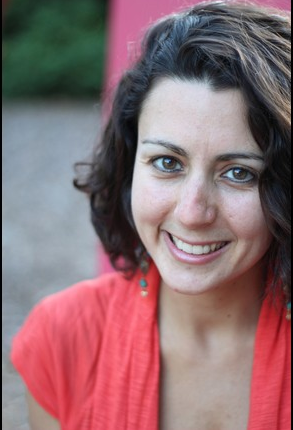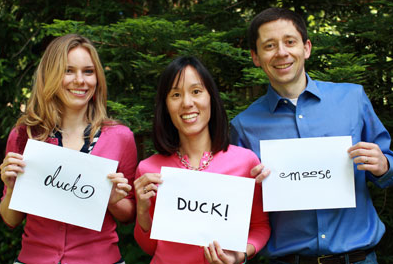It’s a Fox and Hounds first principle that whenever you’re discouraged about California’s economic future, you just need to speak with one of the hundreds of thousands of California entrepreneurs. This is especially true of our state’s entrepreneurs in their twenties and thirties. These younger entrepreneurs span all sectors, and are particularly prominent in our technology sector.
Ms. Alexis Ringwald and Ms. Caroline Hu Flexer are two of the tech entrepreneurs. Both are natives of California and both located in Silicon Valley. With their educational credentials, both could find well-paying jobs in established firms. They have chosen to strike out and try to create new California-based businesses.
 Ms. Ringwald, 28, is a native of Orange County, with a B.A.(political science) and M.E.M. from Yale. After graduation she went to India as a Fulbright Scholar, to study alternative energy efforts, including electric vehicles. With two other women, she spearheaded a Climate Solutions Road Tour, driving three electric vehicles (with solar roofs) on a 2100 mile trip across the country. Returning to California, she was one of the co-founders of Valence Energy, a firm creating energy management software systems for commercial buildings. In late 2010 Valence was sold to Serious Energy, and Ms. Ringwald looked for her next start-up.
Ms. Ringwald, 28, is a native of Orange County, with a B.A.(political science) and M.E.M. from Yale. After graduation she went to India as a Fulbright Scholar, to study alternative energy efforts, including electric vehicles. With two other women, she spearheaded a Climate Solutions Road Tour, driving three electric vehicles (with solar roofs) on a 2100 mile trip across the country. Returning to California, she was one of the co-founders of Valence Energy, a firm creating energy management software systems for commercial buildings. In late 2010 Valence was sold to Serious Energy, and Ms. Ringwald looked for her next start-up.
She spent some months with job seekers and job counselors at the One-Stop Center in Silicon Valley. From this research, in Fall 2011 she launched LearnUp, an internet-based firm dedicated to linking job seekers with the specific skills required by employers.
Media depictions of technology start-ups, most prominently The Social Network, portray glamour elements of tech entrepreneurship. Of course, most tech entrepreneurship is composed of unglamorous, day to day, contacts and rejections. On a recent morning, Ms. Ringwald was at the One Stop Center, seeking to recruit job seekers to try out her skills upgrading product. As most job seekers today are aimed at immediate job placement, rather than skills upgrading, her endeavor was not an easy one. Further, the online job training field has become a very competitive field, with tens of established educational entities and start-ups, operating now in California.
Still, Ms. Ringwald and her partner Mr. Kenny Ma, persevere. Each day, they must try to build something out of nothing, to engage human resources managers who are very difficult to reach, to convince unemployed workers that some training investment is worth their time—all of which, they are doing, against most odds, with their idea of a better training system.
 Not too far from Ms. Ringwald in Palo Alto, Ms. Hu Flexer is developing her business, Duck Duck Moose. Ms. Hu Flexer is a native of Los Altos, who graduated from Princeton in 1994, the Harvard Graduate School of Design, and Stanford Business School. She worked at several prominent California firms, including as a design consultant at IDEO, and a product manager of Quicken and QuickBooks software at Intuit.
Not too far from Ms. Ringwald in Palo Alto, Ms. Hu Flexer is developing her business, Duck Duck Moose. Ms. Hu Flexer is a native of Los Altos, who graduated from Princeton in 1994, the Harvard Graduate School of Design, and Stanford Business School. She worked at several prominent California firms, including as a design consultant at IDEO, and a product manager of Quicken and QuickBooks software at Intuit.
In 2008 she observed her two year old daughter utilizing the touch screen on the new Apple iPhone. Over the next months, she worked with her husband Mr. Michael Flexer, a software engineer, and Ms. Nicci Gabriel, a designer and illustrator, to develop a children’s application for the iPhone. The first app, “Wheels on the Bus” came out in January 2009, and won the Best Children’s App at the 2010 International Consumer Electronics Show. “Wheels on the Bus” has been followed by nine other children’s apps, including “Old MacDonald”, “Musical Me” and “Puzzle Pop”. The company has expanded to apps for the iPad and Android, and a children’s music album on iTunes.
For the first apps, the founders kept costs low by doing the graphics, music and voices in-house, with family and friends. More recently, the company has reached out to generate work for a number of other graphic designers and engineers. As the company succeeds, it will hire its own employees.
For Ms. Ringwald and Ms. Hu their business start-ups are not due to any government programs. Each has been funded by its entrepreneurs, willing to risk capital as well as their time. What they have benefited from is the community of entrepreneurs in the Silicon Valley and beyond in California, especially their fellow entrepreneurs who share ideas, contacts, and strategy with them.
“All of my friends are engaged in some business start-up” Ms. Ringwald notes, and she describes a number of them. There is a business to mine minerals from old appliances, a business to build wind turbines on a residential scale, a healthcare business to better link patients and doctors, even a business to identify the genome of new business start-ups (Startup Genome Compass). All of these businesses take on key social issues but through business generation not policy papers.
California is fortunate that an entrepreneurial ethos is even stronger in this new generation than in previous ones. Our state government challenge, in tax and regulatory policies, is how to nurture it, and spread it widely among sectors and populations—in the words of our publisher, Mr. Fox, to let a thousand flowers bloom.

